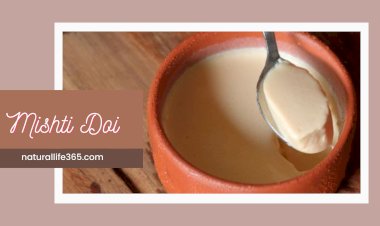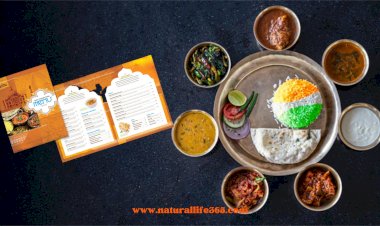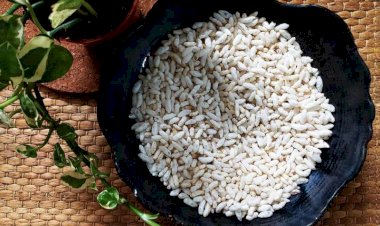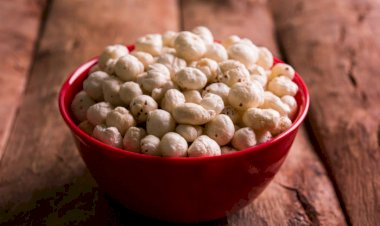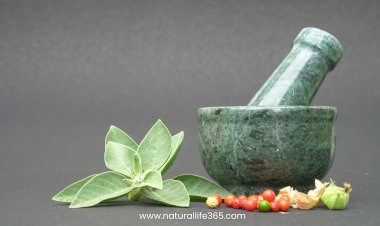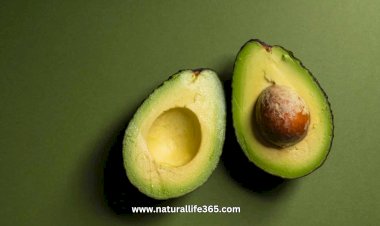Mustard Oil: An Essential Ingredient in Indian Kitchen
Discover the rich flavors of Indian cuisine with Mustard Oil, a vital ingredient for authentic dishes. Learn its health benefits and cooking tips
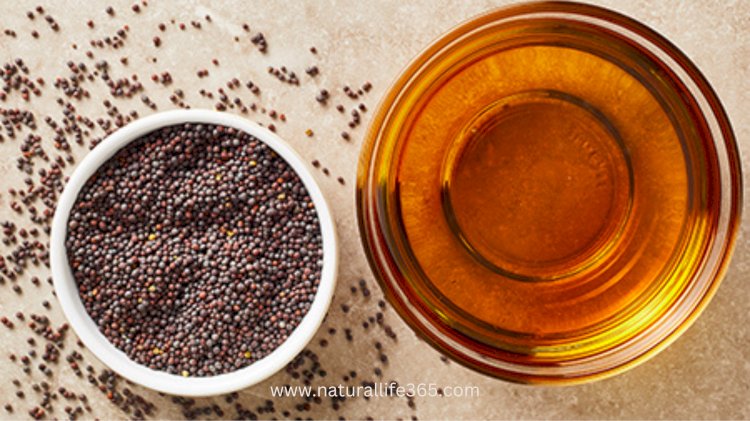
Mustard oil holds a cherished place in Indian kitchens, where it is revered as an essential ingredient with a rich history. Its distinct flavor and numerous health benefits make it a staple in traditional Indian cuisine.
Join us as we delve into the significance of mustard oil, its culinary versatility, and the cultural legacy it carries within the vibrant tapestry of Indian cooking. Discover how this golden elixir adds a unique touch to dishes and unlocks a world of flavors in every bite.
What is Mustard Oil?
Mustard oil is a type of vegetable oil extracted from the seeds of the mustard plant, predominantly in India and other parts of Asia. It is characterized by its distinct pungent flavor and rich golden color. Mustard oil is widely used in Indian cuisine as a cooking medium, known for its ability to enhance the flavors of various dishes.
Additionally, it is also utilized in traditional medicine and has gained recognition for its potential health benefits, making it a versatile and essential ingredient in many Indian dishes, especially, in Bengali cuisine.
Health Benefits of Mustard Oil
Nutritional Profile and Essential Fatty Acids
Mustard oil boasts a noteworthy nutritional profile, packed with essential fatty acids that contribute to its health benefits. It is rich in monounsaturated fats, which are heart-healthy and aid in reducing bad cholesterol levels.
Additionally, it contains omega-3 and omega-6 fatty acids, crucial for brain function and reducing inflammation in the body. The presence of vitamins E and K further adds to its nutritional value, making mustard oil a nourishing choice for cooking and overall well-being.
Potential Cardiovascular Benefits
Mustard oil has been associated with potential cardiovascular benefits, making it a favorable choice for heart health. The high content of monounsaturated fats in mustard oil helps in reducing LDL cholesterol levels, commonly known as "bad" cholesterol, while promoting the increase of HDL cholesterol, often referred to as "good" cholesterol.
This favorable lipid profile may contribute to a reduced risk of heart disease and related conditions. Incorporating mustard oil into your cooking repertoire may thus be a beneficial step towards maintaining a healthy cardiovascular system.
Anti-inflammatory and Antioxidant Properties
Mustard oil possesses notable anti-inflammatory and antioxidant properties, making it a valuable addition to one's dietary routine. The oil contains compounds like allyl isothiocyanate and selenium, which exhibit anti-inflammatory effects, helping to reduce inflammation in the body and potentially alleviating symptoms of conditions like arthritis.
Additionally, mustard oil is rich in antioxidants, such as tocopherols and phenolic compounds, which combat free radicals and oxidative stress. This antioxidant activity contributes to overall cellular health and may offer protective effects against chronic diseases. Incorporating mustard oil into your cooking can thus contribute to an anti-inflammatory and antioxidant-rich diet.
Boosting Immunity and Digestive Health
Mustard oil has been recognized for its potential to boost immunity and promote digestive health. It contains compounds like glucosinolates, which possess antimicrobial properties and may help in strengthening the immune system. These compounds aid in defending the body against harmful bacteria and viruses. Furthermore, mustard oil has been traditionally used to stimulate digestion and improve gastrointestinal health.
Its consumption is believed to enhance the production of digestive enzymes, facilitate nutrient absorption, and alleviate digestive discomfort. By incorporating mustard oil into your culinary repertoire, you can potentially support your immune system and promote a healthy digestive tract.
Culinary Uses and Cooking Tips
Versatility in Various Indian Dishes and Regional Cuisines
Mustard oil showcases remarkable versatility in various Indian dishes and regional cuisines. It is a beloved ingredient used in an array of traditional recipes, ranging from curries, stir-fries, and marinades to pickles and chutneys.
The distinct pungent flavor of mustard oil adds depth and character to these preparations, enhancing the overall taste profile. Furthermore, different regions in India have their own unique culinary traditions, and mustard oil plays a prominent role in many of them.
From Bengali cuisine to Punjabi delicacies, mustard oil is an indispensable element that imparts an authentic touch to the dishes, making it a true cornerstone of Indian culinary artistry.
Enhancing Flavors and Imparting a Distinct Aroma
Mustard oil is renowned for its exceptional ability to enhance flavors and impart a distinct aroma to dishes. The strong, pungent taste of mustard oil adds a unique and unmistakable character to various culinary creations. It acts as a flavor catalyst, intensifying the taste of spices and other ingredients used in Indian cooking.
Additionally, the aromatic essence of mustard oil tantalizes the senses, creating an appetizing experience that truly distinguishes it from other cooking oils. Whether used as a cooking medium or as a finishing touch, mustard oil elevates the flavors of dishes and lends them an enticing aroma that is quintessentially Indian.
Proper Methods of Using Mustard Oil in Cooking
Using mustard oil in cooking requires specific methods to ensure its optimal flavor and safety. Here are some proper techniques to employ when incorporating mustard oil:
- Heat and Temper: Mustard oil has a high smoking point and a robust flavor, so it is commonly heated and tempered before use. Heat the oil in a pan until it reaches its smoking point, then remove it from the heat and allow it to cool slightly before proceeding with the recipe.
- Marination: Mustard oil is often used for marinating meats, seafood, or vegetables. Its strong flavor penetrates the ingredients, infusing them with a distinct taste. Combine mustard oil with desired spices and ingredients, and allow the mixture to marinate for a sufficient period to maximize flavor absorption.
- Blending with Other Oils: If you find the taste of pure mustard oil too strong, you can blend it with milder oils like vegetable or sunflower oil. This combination helps balance the flavors while retaining the characteristic essence of mustard oil.
- Finishing Touch: Mustard oil can also be used as a finishing oil by drizzling it over prepared dishes just before serving. This technique imparts a final burst of flavor and aroma, enhancing the overall culinary experience.
- Quantity and Moderation: Mustard oil has a potent taste, so it is advisable to use it in moderation. Start with smaller quantities, especially if you are new to its strong flavor, and gradually adjust according to your preferences.
By following these proper methods of using mustard oil in cooking, you can harness its unique qualities to create delectable and authentic Indian dishes.
Tips for Storage and Shelf Life
Fortune Premium Kachi Ghani Pure Mustard Oil, 1Litre PET Bottle
To ensure the quality and extend the shelf life of mustard oil, here are some essential tips for proper storage:
- Store in a Cool and Dark Place: Mustard oil is sensitive to light and heat, which can cause it to deteriorate quickly. It is best to store it in a cool and dark place, such as a pantry or kitchen cabinet, away from direct sunlight and heat sources.
- Use Airtight Containers: Transfer mustard oil from its original packaging to a clean, airtight container. This helps to protect it from air exposure, which can lead to oxidation and rancidity.
- Avoid Moisture and Contamination: Ensure that the container is dry before pouring the oil into it. Moisture can lead to the growth of mold or bacteria. Additionally, always use clean and dry utensils when handling the oil to prevent any contamination.
- Check for Quality: Before using mustard oil, give it a quick sniff to detect any off-putting or rancid odor. Fresh mustard oil should have a strong and pungent aroma. If it smells unpleasant or rancid, discard it.
- Monitor the Shelf Life: Mustard oil typically has a shelf life of around 6 to 12 months when stored properly. It is recommended to check the expiration date on the packaging and use it before that date for the best quality. Discard any mustard oil that has passed its expiration date or has developed an off odor.
By following these storage tips, you can ensure that your mustard oil stays fresh, flavorful, and suitable for use in your culinary endeavors.
Mustard Oil in Traditional Ayurvedic Practices
Ayurvedic Principles and the Use of Mustard Oil
In Ayurveda, the ancient Indian system of medicine, mustard oil holds a significant place due to its therapeutic properties. According to Ayurvedic principles, mustard oil is believed to possess heating and stimulating qualities, making it suitable for specific purposes. Here are some key aspects of mustard oil usage in Ayurveda:
- Ayurvedic Massage: Mustard oil is commonly used in Ayurvedic massage therapies, known as Abhyanga. The oil is warmed and gently massaged onto the body, promoting relaxation, improved circulation, and nourishment of the skin. It is believed to pacify Vata and Kapha doshas, balancing the body's energies.
- Skin and Hair Care: Mustard oil is considered beneficial for skin and hair health. It is often used in Ayurvedic formulations for skin moisturization, reducing dryness, and enhancing complexion. Similarly, applying mustard oil to the scalp is believed to promote hair growth, combat dandruff, and strengthen hair follicles.
- Ayurvedic Remedies: Mustard oil is utilized in various Ayurvedic remedies and preparations. It is often combined with other ingredients to create pastes or poultices used externally for joint pain relief, soothing inflamed muscles, and addressing specific ailments.
- Dosha Considerations: Ayurveda recognizes the importance of individual constitution or dosha balance. Mustard oil is believed to aggravate Pitta dosha when used excessively or by individuals with Pitta imbalances. Moderation and consultation with an Ayurvedic practitioner are recommended to ensure appropriate usage based on individual needs.
While incorporating mustard oil in Ayurvedic practices, it is essential to respect the principles of Ayurveda, follow proper guidelines, and seek guidance from qualified practitioners to harness its potential benefits within the context of this ancient holistic system of medicine.
Promoting Healthy Skin and Hair
Nutriorg Cold Pressed Certified Organic Mustard Oil 1 L ( Pack of 2* 500 ml)
Mustard oil has been traditionally valued for its ability to promote healthy skin and hair. When used topically, it offers several potential benefits:
- Skin Moisturization: Mustard oil acts as a natural emollient, deeply moisturizing the skin. It helps to alleviate dryness, roughness, and flakiness, leaving the skin soft and supple.
- Enhancing Complexion: Regular application of mustard oil is believed to improve skin complexion and tone. It may help to reduce the appearance of blemishes, dark spots, and pigmentation, resulting in a more even and radiant complexion.
- Anti-Aging Properties: The presence of antioxidants and essential fatty acids in mustard oil may contribute to its anti-aging effects. It helps to combat free radicals, which are responsible for skin damage and premature aging, thereby promoting a youthful appearance.
- Hair Growth and Strength: Mustard oil is often used to promote hair growth and strengthen hair follicles. Massaging the scalp with mustard oil stimulates blood circulation, nourishes the hair roots, and may help in combating hair loss, improving hair thickness, and enhancing overall hair health.
- Scalp Health and Dandruff Control: The antimicrobial and anti-inflammatory properties of mustard oil make it a potential remedy for scalp issues such as dandruff, itchiness, and scalp infections. It helps to soothe the scalp, reduce inflammation, and maintain a healthy scalp environment.
When using mustard oil for skin and hair, it is recommended to perform a patch test beforehand, especially if you have sensitive skin or scalp. Additionally, ensure the quality and purity of the oil, and use it in moderation to avoid any adverse reactions.
Ayurvedic Massage and Therapeutic Applications
Ayurvedic massage, known as Abhyanga, holds a significant place in Ayurveda, and mustard oil plays a vital role in this therapeutic practice. Here are some aspects of Ayurvedic massage and the therapeutic applications of mustard oil:
- Abhyanga Massage: Ayurvedic massage involves the application of warm mustard oil onto the body in gentle, rhythmic strokes. It is considered a deeply relaxing and rejuvenating practice that aims to balance the doshas (Vata, Pitta, and Kapha), enhance overall well-being, and promote harmony between the mind, body, and spirit.
- Stimulating Blood Circulation: Mustard oil, with its warming properties, is believed to enhance blood circulation when used in Ayurvedic massage. This improved circulation can aid in the delivery of oxygen and nutrients to the body's tissues and organs, supporting their optimal functioning.
- Muscle and Joint Health: Ayurvedic massage with mustard oil is known to be beneficial for muscle and joint health. The oil's penetrating quality helps to relax muscles, reduce stiffness, and alleviate muscular tension. It may also provide relief from joint discomfort and promote flexibility.
- Detoxification: Ayurvedic massage is considered a valuable tool for detoxification. Mustard oil, when used in massage, is believed to assist in the elimination of toxins from the body, improving the overall detoxification process and promoting a sense of purification and rejuvenation.
- Relaxation and Stress Relief: The soothing nature of Ayurvedic massage with mustard oil can induce deep relaxation and help reduce stress and anxiety. It offers a nurturing and calming experience that can ease the mind, promote better sleep, and support overall mental well-being.
It is important to note that Ayurvedic massage with mustard oil should be performed by trained practitioners familiar with Ayurvedic principles and techniques. They can tailor the massage according to an individual's unique needs and ensure a safe and effective experience.
Other Medicinal Uses and Remedies
In addition to its culinary and Ayurvedic applications, mustard oil has been traditionally utilized for various medicinal purposes and home remedies. Here are some examples of its other potential medicinal uses:
- Respiratory Health: Mustard oil has been used in traditional remedies to address respiratory issues such as congestion, coughs, and colds. It is commonly applied topically as a chest rub or used in a steam inhalation to help clear nasal passages and promote easier breathing.
- Joint and Muscle Discomfort: Mustard oil is believed to possess analgesic properties that can help alleviate joint pain, arthritis, and muscular discomfort. It is often used in Ayurvedic formulations or as a massage oil to provide relief and reduce inflammation in affected areas.
- Skin Conditions: Mustard oil's antibacterial and anti-inflammatory properties may make it beneficial for certain skin conditions. It is sometimes used topically to soothe skin irritations, minor infections, rashes, or insect bites. However, caution should be exercised, and a patch test is recommended, especially for sensitive skin.
- Hair and Scalp Issues: Apart from promoting hair growth and scalp health, mustard oil has been traditionally used to address specific hair and scalp concerns. It may be utilized in homemade remedies to control dandruff, treat scalp infections, or nourish the hair strands for improved texture and shine.
- Massage and Pain Relief: Mustard oil is often employed as a carrier oil for other essential oils in therapeutic massages. Its ability to penetrate deep into the skin and muscles can enhance the effectiveness of massage therapies aimed at promoting relaxation, relieving pain, and easing muscle tension.
It is important to note that while mustard oil has been used in traditional remedies, scientific evidence supporting its medicinal applications is limited. Consulting with a healthcare professional or Ayurvedic practitioner is advised before using mustard oil for any specific medicinal purpose to ensure safety and efficacy.
Safety and Precautions
Concerns About Erucic Acid Content
Dabur Cold Pressed Mustard Oil 1L | Healthy Cooking Oil | Goodness of Omega 3 & 6
Erucic acid is a naturally occurring fatty acid found in certain oils, including mustard oil. However, there have been concerns regarding its potential health effects. Here are some important points to address these concerns:
- Erucic Acid Levels in Mustard Oil: Mustard oil typically contains variable levels of erucic acid, depending on the variety of mustard seeds used and the extraction process. Traditional cold-pressed mustard oil, commonly used in Indian kitchens, generally has lower erucic acid content compared to industrially processed oils.
- Regulatory Standards: Regulatory bodies, such as the Food Safety and Standards Authority of India (FSSAI), have set maximum limits for erucic acid content in edible oils. These limits ensure that mustard oil available in the market meets safety standards and is safe for consumption.
- Safety Considerations: Studies on erucic acid have shown conflicting results regarding its potential health risks. While high levels of erucic acid have been associated with adverse effects in animal studies, the human evidence is limited. Additionally, the erucic acid content in mustard oil used in cooking is generally within safe limits and is not considered a significant health concern.
- Moderation and Variety: As with any dietary component, moderation and variety are key. It is advisable to consume a balanced diet that includes a variety of oils to ensure a diverse intake of essential fatty acids. Rotating between different cooking oils can provide a broader range of nutritional benefits.
- Personal Considerations: If you have specific health conditions or concerns related to erucic acid, it is recommended to consult with a healthcare professional or a registered dietitian who can provide personalized guidance based on your individual needs and circumstances.
It is important to stay informed about the latest research and recommendations regarding erucic acid and make informed choices when selecting and using mustard oil or any other cooking oil.
Proper Usage and Moderation
Proper usage and moderation are crucial when incorporating mustard oil into your cooking and wellness routines. Here are some key points to keep in mind:
- Serving Size: Mustard oil is highly potent and has a strong flavor, so it is important to use it in moderation. Start with smaller quantities and gradually adjust according to your taste preferences and the recipe requirements.
- Cooking Temperatures: Mustard oil has a high smoking point, which makes it suitable for various cooking methods, including frying, sautéing, and stir-frying. However, it is advisable not to heat the oil beyond its smoking point to avoid the production of harmful compounds.
- Blending with Milder Oils: If you find the taste of pure mustard oil too strong, you can blend it with milder oils such as vegetable or sunflower oil. This mixture helps balance the flavors while retaining the distinctive essence of mustard oil.
- Ayurvedic Considerations: If using mustard oil for Ayurvedic purposes, it is recommended to consult with an Ayurvedic practitioner who can guide you on the appropriate usage based on your dosha balance and specific health needs.
- Dietary Variety: While mustard oil offers certain nutritional benefits, it is important to maintain a balanced and varied diet by incorporating other cooking oils as well. This ensures a diverse intake of essential fatty acids and other nutrients.
- Personal Sensitivities: Individuals with specific health conditions or allergies should exercise caution and consult with a healthcare professional before incorporating mustard oil into their diet or wellness routine.
By practicing proper usage and moderation, you can enjoy the unique flavors and potential health benefits of mustard oil while maintaining a well-rounded approach to your overall dietary and wellness habits.
Potential Allergic Reactions and Sensitivities
While mustard oil is generally safe for most individuals, it is important to be aware of potential allergic reactions and sensitivities that some people may experience. Here are some key points to consider:
- Mustard Allergy: Mustard oil is derived from mustard seeds, and individuals with a known allergy to mustard should avoid consuming or using mustard oil. Mustard allergies can manifest as skin rashes, hives, itching, swelling, difficulty breathing, or gastrointestinal symptoms like nausea and vomiting. If you have a mustard allergy, it is best to seek alternative oils for your culinary and skincare needs.
- Cross-Reactivity: Individuals with allergies to certain foods, such as tree nuts, may also be at risk of cross-reactivity with mustard oil. Cross-reactivity occurs when the immune system recognizes similar proteins in different substances. If you have allergies to other foods, consult with an allergist or healthcare professional to determine whether there is a risk of cross-reactivity with mustard oil.
- Skin Sensitivity: Some individuals may experience skin sensitivity or irritation when applying mustard oil topically. It is advisable to perform a patch test on a small area of skin before using it extensively. If any redness, itching, or irritation occurs, discontinue use and seek medical advice.
- Asthma and Respiratory Concerns: In rare cases, inhalation of mustard oil vapors or aerosols may trigger respiratory symptoms in individuals with asthma or other respiratory conditions. If you have a history of respiratory issues, it is recommended to exercise caution when using or being exposed to mustard oil vapors.
- Individual Sensitivities: Each person's body may react differently to substances, including oils. If you notice any adverse reactions, discomfort, or unusual symptoms after consuming or using mustard oil, it is advisable to consult with a healthcare professional for proper evaluation and guidance.
Being aware of potential allergic reactions and sensitivities associated with mustard oil can help you make informed decisions and take necessary precautions. If you suspect an allergic reaction or experience severe symptoms, seek immediate medical attention.
Consultation with Healthcare Professionals when Needed
It is important to emphasize that when it comes to specific health concerns, allergies, or any doubts about incorporating mustard oil into your diet or wellness routine, it is always advisable to consult with healthcare professionals. They can provide personalized guidance and address your individual needs based on your medical history, allergies, and overall health condition.
Healthcare professionals, such as doctors, nutritionists, dietitians, or Ayurvedic practitioners, have the expertise to offer tailored advice and ensure your well-being. Seeking professional input can help you make informed decisions and navigate any potential risks or interactions. Remember, your healthcare provider is the best resource for addressing your specific concerns and ensuring your health and safety.
As you can see, mustard oil holds a significant place as an essential ingredient in Indian kitchens for various reasons. It offers not only a distinct flavor and aroma but also potential health benefits. From its nutritional profile and essential fatty acids to its potential cardiovascular benefits, anti-inflammatory properties, and immune-boosting properties, mustard oil proves to be a versatile and valuable addition to culinary and wellness practices.
It imparts flavors to a wide range of Indian dishes and regional cuisines, and its application extends to Ayurvedic principles for massage and therapeutic purposes. However, it is crucial to use mustard oil in moderation, be aware of potential allergic reactions or sensitivities, and seek professional advice when necessary.
With proper knowledge and responsible usage, mustard oil can continue to be cherished as a staple ingredient, adding both taste and potential wellness advantages to Indian kitchens.
If you value these free online resources provided by Natural Life 365, please consider supporting my website by sharing the blogs![]()
DISCLAIMER:
Some of the links in this content may be affiliate links. This means that if you click on one of the links and make a purchase, I may receive a commission (at no extra charge to you). However, I only recommend products that I personally use and have tested myself. Also, understand that I have taken reasonable steps to ensure that the information on this content is accurate, but I cannot represent that the website(s) mentioned in this post are free from errors. Please, check the Affiliate Disclosure at the bottom of this website.










